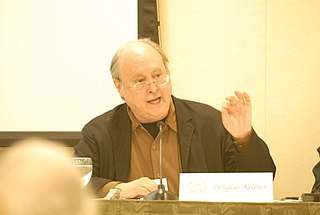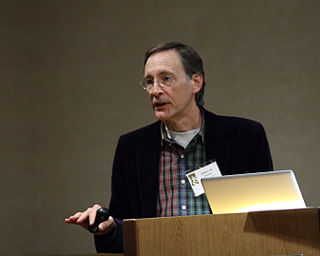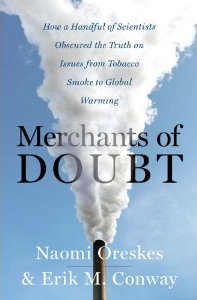Iain Boal is an Irish social historian of technics and the commons, based as an independent scholar in Berkeley, California and London.
Iain Boal is an Irish social historian of technics and the commons, based as an independent scholar in Berkeley, California and London.
He was one of the co-founders of the Retort collective, an association of radical writers, teachers, artists, and activists in the Bay Area from the 1990s to the present. He co-edited Resisting the Virtual Life: The Culture and Politics of Information (1995). He co-authored Afflicted Powers: Capital and Spectacle in a New Age of War (2001), along with T.J. Clark, Joseph Matthews and Michael Watts. In 2012, he published The Green Machine - a world history of the bicycle (Notting Hill Editions, out of print). Since 2005 or earlier, he has also been working on a book manuscript about "The Long Theft: Episodes in the History of Enclosure." As of 2022, he was working on an edited volume Archives of Dissent, which is under contract to be published by PM Press.
The historians Robert Proctor and Londa Schiebinger have credited Boal with coining the term "Agnotology" in 1992 [1] to describe the intentional production of ignorance or doubt, often for commercial gain. Originally conceived to explain the behavior of tobacco companies, it has gained more recent currency in the context of commercially motivated climate change denial.
He is married to the archivist Gillian Boal.

Iain Banks was a Scottish author, writing mainstream fiction as Iain Banks and science fiction as Iain M. Banks, adding the initial of his adopted middle name Menzies. After the success of The Wasp Factory (1984), he began to write full time. His first science fiction book, Consider Phlebas, appeared in 1987, marking the start of the Culture series. His books have been adapted for theatre, radio, and television. In 2008, The Times named Banks in their list of "The 50 greatest British writers since 1945".

Augusto Boal was a Brazilian theatre practitioner, drama theorist, and political activist. He was the founder of Theatre of the Oppressed, a theatrical form originally used in radical left popular education movements. Boal served one term as a Vereador in Rio de Janeiro from 1993 to 1997, where he developed legislative theatre.

Feersum Endjinn is a science fiction novel by Scottish writer Iain M. Banks, first published in 1994. It won a British Science Fiction Association Award in 1994.

The Salem witch trials were a series of hearings and prosecutions of people accused of witchcraft in colonial Massachusetts between February 1692 and May 1693. More than 200 people were accused. Thirty people were found guilty, nineteen of whom were executed by hanging. One other man, Giles Corey, died under torture after refusing to enter a plea, and at least five people died in jail.
Methuen Publishing Ltd is an English publishing house. It was founded in 1889 by Sir Algernon Methuen (1856–1924) and began publishing in London in 1892. Initially Methuen mainly published non-fiction academic works, eventually diversifying to encourage female authors and later translated works. E. V. Lucas headed the firm from 1924 to 1938.

Iain Sinclair FRSL is a writer and filmmaker. Much of his work is rooted in London, recently within the influences of psychogeography.
Michael J. Watts is Professor Emeritus of Geography at the University of California, Berkeley. He retired in 2016. He is a leading critical intellectual figure of the academic left.

Brian Massumi is a Canadian philosopher and social theorist. Massumi's research spans the fields of art, architecture, cultural studies, political theory and philosophy. His work explores the intersection between power, perception, and creativity to develop an approach to thought and social action bridging the aesthetic and political domains. He is a retired professor in the Communications Department of the Université de Montréal.

Kenneth Brian Frampton is a British architect, critic and historian. He is regarded as one of the world's leading historians of modernist and contemporary architecture. He is an Emeritus Professor of Architecture at the Graduate School of Architecture, Planning, and Preservation at Columbia University, New York, where he taught for over 50 years. He is a citizen of Britain and the United States.
Timothy James "T. J." Clark is a British art historian and writer. He taught art history in a number of universities in England and the United States, including Harvard and the University of California, Berkeley.
Alison Wylie is a Canadian philosopher of archaeology. She is a professor of philosophy at the University of British Columbia and holds a Canada Research Chair in Philosophy of the Social and Historical Sciences.
Simon Sadler is a professor in the Department of Design and in the Art History Program at the University of California, Davis. His publications focus on histories, theories and ideologies of architecture, design and urbanism since the mid-twentieth century, and include studies of the Archigram group, the Situationists, and counterculture.

Douglas Kellner is an American academic who works at the intersection of "third-generation" critical theory in the tradition of the Frankfurt Institute for Social Research, or Frankfurt School, and in cultural studies in the tradition of the Birmingham Centre for Contemporary Cultural Studies, or the "Birmingham School". He has argued that these two conflicting philosophies are in fact compatible. He is currently the George Kneller Chair in the Philosophy of Education in the Graduate School of Education and Information Studies at the University of California, Los Angeles.

Within the sociology of knowledge, agnotology is the study of deliberate, culturally induced ignorance or doubt, typically to sell a product, influence opinion, or win favour, particularly through the publication of inaccurate or misleading scientific data (disinformation). More generally, the term includes the condition where more knowledge of a subject creates greater uncertainty.

Robert Neel Proctor is an American historian of science and Professor of the History of Science at Stanford University, where he is also Professor by courtesy of Pulmonary Medicine. While a professor of the history of science at Pennsylvania State University in 1999, he became the first historian to testify against the tobacco industry.
Retort is a community of about forty writers, teachers, artists, and activists, all self-styled opponents of capital and empire, which has been based for the past two decades in the San Francisco Bay Area.

Merchants of Doubt: How a Handful of Scientists Obscured the Truth on Issues from Tobacco Smoke to Global Warming is a 2010 non-fiction book by American historians of science Naomi Oreskes and Erik M. Conway. It identifies parallels between the global warming controversy and earlier controversies over tobacco smoking, acid rain, DDT, and the hole in the ozone layer. Oreskes and Conway write that in each case "keeping the controversy alive" by spreading doubt and confusion after a scientific consensus had been reached was the basic strategy of those opposing action. In particular, they show that Fred Seitz, Fred Singer, and a few other contrarian scientists joined forces with conservative think tanks and private corporations to challenge the scientific consensus on many contemporary issues.

Welcome to the Desert of the Real is a 2002 book by Slavoj Žižek. A Marxist and Lacanian analysis of the ideological and political responses to the terrorist attacks on September 11, 2001, Zizek's study incorporates various psychoanalytic, postmodernist, biopolitical, and (Christian) universalist influences into a Marxist dialectical framework.

Culture jamming is a form of protest used by many anti-consumerist social movements to disrupt or subvert media culture and its mainstream cultural institutions, including corporate advertising. It attempts to "expose the methods of domination" of mass society.
Mark Louis Hallett is an English art historian specialising in the history of British art. He is the Märit Rausing Director of the Courtauld Institute of Art.